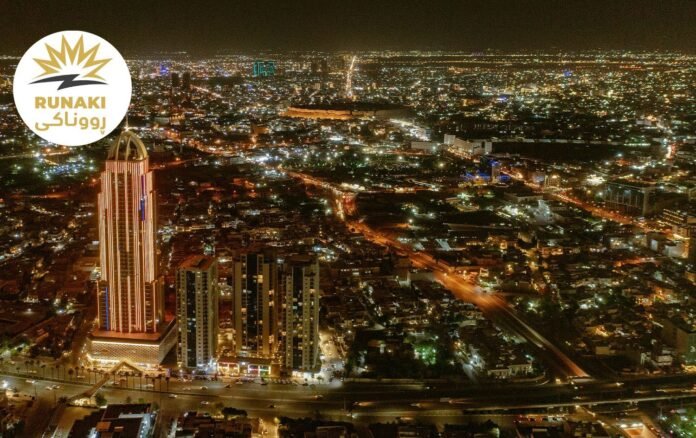Kurdistan continues to expand access to uninterrupted electricity through the Runaki project. Over 2 million residents now benefit from 24-hour power under this strategic initiative by the Kurdistan Regional Government (KRG). The Ministry of Electricity confirmed the achievement while highlighting future goals to improve grid access across the region.
Since its launch, the Runaki project has rapidly grown to cover major parts of Erbil, Sulaymaniyah, and Duhok. The ministry revealed that more than 2,544,000 people now enjoy stable electricity without relying on diesel generators. Officials have already removed more than 2,100 generators and plan to eliminate over 7,000 units by the end of 2026.
Kurdistan’s electricity plan aims to provide full-day power from the national grid to all major city centers. The government expects to complete full coverage of Erbil, Sulaymaniyah, Duhok, and Halabja before the end of 2025. As grid expansion continues, officials remain focused on modernizing power infrastructure and improving efficiency throughout the region.
Electricity shortages have long troubled households in Kurdistan, particularly during extreme summer and winter conditions. In the past, most neighborhoods received only 8 to 10 hours of public power each day. Private generator networks filled the gap but brought high costs and inconsistent performance.
Residents often paid fluctuating prices for fixed amperage, creating additional financial pressure. These generator systems also caused noise pollution, air quality issues, and safety risks due to fuel storage and unregulated wiring. The Runaki project directly addresses these challenges by offering a centralized, cleaner alternative.
The government believes this transition supports both public welfare and environmental sustainability. By decommissioning diesel units, the region reduces emissions and reliance on fuel imports. At the same time, citizens gain reliable access to power that supports daily life, healthcare, business, and education.
Ministry officials pledged to continue working with local authorities and international partners to maintain progress. They emphasized the importance of energy sector reform in building a resilient economy and providing long-term services to the people of Kurdistan.

